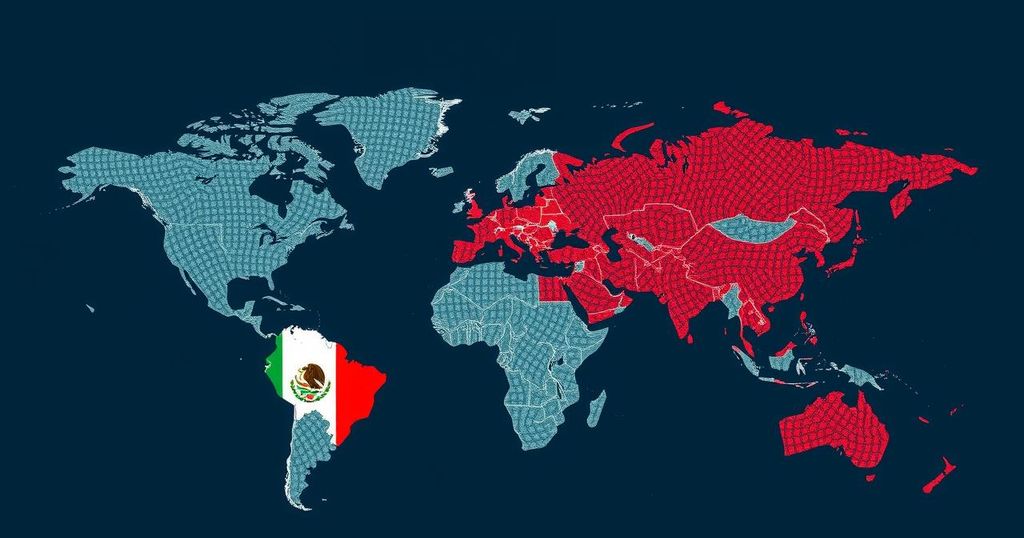Cars
ARGENTINA, ASIA, AUDI, AUTOMOTIVE INDUSTRY, BYD CHINESE EV, CANADA, CHINA, DONALD TRUMP, EXPORT, INDUSTRY, KIA CORP, KOREA, MASAHIRO, MEXICAN AUTOMOTIVE MANUFACTURERS ASSOCIATION, MEXICO, NORTH AMERICA, PHILIPPINES, SAN JOSE CHIAPA, SAN LUIS POTOSI, SANTA FE, SENTRA, SHIN, SHINJI AOYAMA, SOUTH AMERICA, TARIFFS, TRADE, UNITED STATES, US
Daniel O'Connor
0 Comments
Impact of Trump’s Proposed Tariffs on U.S. Companies in Different Sectors
President-elect Donald Trump’s intention to impose tariffs on Canada, Mexico, and China could significantly impact U.S. companies. The automotive sector, including manufacturers such as Audi and Honda, is particularly vulnerable due to their production in Mexico. Additionally, electronics and retail industries are preparing to manage potential disruptions and increased costs in their supply chains amidst evolving trade policies.
In late November, President-elect Donald Trump announced plans to impose tariffs on the United States’ largest trading partners: Canada, Mexico, and China, raising the prospect of trade conflicts. Numerous companies across industries are likely to face repercussions, particularly within the automotive sector. Major firms such as Audi, BMW, Honda, and Volkswagen have significant operations in Mexico, exporting a large portion of their production to the U.S. market, thereby rendering them vulnerable to such tariffs. Furthermore, auto suppliers like Autoliv and Michelin, along with electronics manufacturers including Foxconn and LG Electronics, maintain substantial production in Mexico, which could also be impacted. Retailers such as H&M and Five Below, reliant on imports from China, are examining ways to mitigate potential tariff impacts as they navigate this uncertainty. Companies like Procter & Gamble and Unilever, involved in packaged goods, have also invested significantly in Mexican supply chains, making them susceptible to trade policy changes.
The tariffs proposed by Donald Trump signal a significant shift in U.S. trade policy that could have far-reaching effects on various sectors, especially those with strong ties to Mexico. The automotive industry is particularly at risk, given that many manufacturers have established plants in Mexico producing vehicles primarily for U.S. consumption. This situation stems from the North American Free Trade Agreement (NAFTA), which facilitated trade between the U.S., Canada, and Mexico, making tariff policies a critical element in shaping current and future business strategies. In addition, the interconnectedness of global supply chains means that industries beyond automotive are also likely to face challenges associated with increased costs of goods and potential disruptions in production.
The potential imposition of tariffs by the Trump administration could create substantial challenges for various companies engaged in international trade, especially those operating in Mexico. Major automotive manufacturers and electronics producers, along with retail and packaged goods firms, are bracing for possible increases in costs and disruptions as they consider strategies to mitigate the impact of these tariffs. The broader implications of such trade policies highlight the complex nature of current global supply chains and the need for companies to remain agile in the face of policy changes.
Original Source: www.business-standard.com




Post Comment